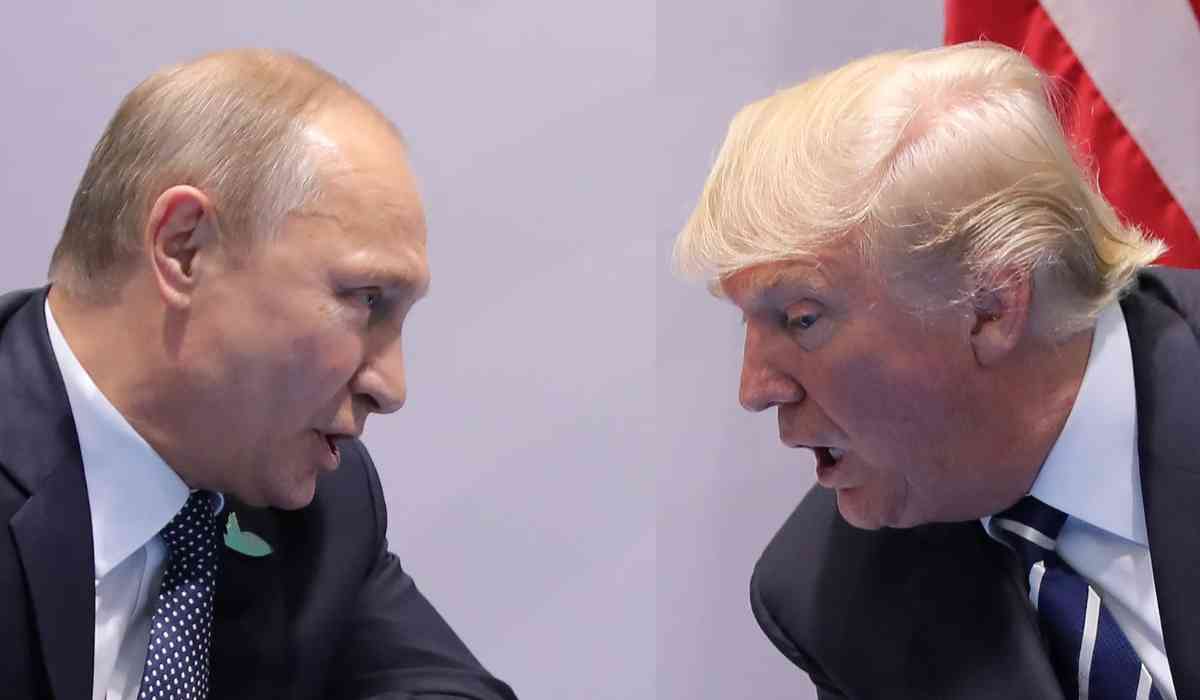President Donald Trump’s recent public rebuke of Russian President Vladimir Putin following a deadly missile and drone attack on Kyiv has sparked widespread discussion about whether his call for peace is genuine pressure or political theater. The attack, one of the deadliest on Ukraine’s capital in nearly a year, killed at least 12 people and injured dozens more, intensifying the ongoing conflict between Russia and Ukraine.
Trump’s Rare Rebuke: What Happened?

In the early hours of a recent Thursday, Russia launched a massive coordinated assault on Kyiv and other Ukrainian cities involving ballistic missiles, cruise missiles, and over a hundred drones. The attack resulted in significant casualties and damage. In response, Trump took to his social media platform, Truth Social, to issue a rare direct message to Putin: “Vladimir, STOP! 5000 soldiers a week are dying. Let’s get the Peace Deal DONE!”.
This statement was unusual because Trump has historically been seen as more sympathetic to Putin compared to other Western leaders. His tone was less angry and more disappointed, suggesting that Russia’s actions were “not necessary” and “very bad timing” in the context of ongoing peace talks.
Context: The US Role and Peace Talks

The attack came amid stalled peace negotiations, with the US administration reportedly pushing Ukraine to concede territory, including Crimea, which Russia annexed in 2014. Trump criticized Ukrainian President Volodymyr Zelenskyy for refusing to recognize Russian control over Crimea, calling Zelenskyy’s stance “very harmful to the peace negotiations”. This reflects a broader US strategy under Trump’s influence that seems to lean toward accepting some Russian territorial gains to end the war quickly.
However, Zelenskyy and Ukraine have firmly rejected any deal that legitimizes Russian occupation, emphasizing that such concessions violate Ukraine’s constitution and sovereignty. Zelenskyy has also called for increased international pressure on Russia to stop its aggression, a call that contrasts with Trump’s focus on pressuring Ukraine instead.
Genuine Pressure or Political Theater?
Trump’s public plea to Putin can be seen from two perspectives:
-
Genuine Pressure: Some analysts argue that Trump’s message is an attempt to exert real influence on Putin by appealing directly to him, highlighting the human cost of the conflict and urging a ceasefire. The fact that Trump openly criticized Putin, even if mildly, is rare and could indicate a desire to push for peace.
-
Political Theater: Others view Trump’s rebuke as largely symbolic, serving more to position himself politically amid criticism of his handling of foreign policy. His simultaneous criticism of Zelenskyy and apparent acceptance of Russian territorial gains suggest that his approach prioritizes a quick resolution over Ukraine’s sovereignty and may not reflect a balanced or effective peace strategy.
Moreover, experts note that the US has multiple tools to pressure Russia but has so far focused more on urging Ukraine to compromise rather than directly confronting Putin’s actions. This imbalance raises questions about the sincerity and effectiveness of Trump’s “STOP” message.
The Bigger Picture

The conflict between Russia and Ukraine remains complex, with deep historical, political, and security dimensions. Any peace deal must consider the interests of Ukraine, Russia, and the broader international community, including European allies who are directly threatened by Russian aggression. While a ceasefire is widely desired, the conditions for lasting peace are contentious and far from agreement.
Trump’s public rebuke of Putin after the Kyiv attack highlights the challenges facing US diplomacy: balancing pressure on Russia with support for Ukraine, managing international alliances, and navigating domestic political considerations. Whether this moment marks a genuine effort to end the conflict or a political gesture remains to be seen.
In summary, President Trump’s call for Putin to “STOP” after the deadly Kyiv strike is a rare public criticism that reflects frustration with the ongoing war and stalled peace talks. However, the mixed messages—criticizing both Russia and Ukraine, and suggesting acceptance of Russian territorial claims—complicate the perception of his stance. The US continues to face difficult choices in its role as mediator, with the ultimate goal of ending the conflict while respecting Ukraine’s sovereignty and regional stability.
As the situation unfolds, diplomatic efforts and dialogue will be crucial to prevent further deterioration and to find peaceful solutions to complex issues like water sharing, security, and cross-border terrorism.
With inputs from agencies
Image Source: Multiple agencies
© Copyright 2025. All Rights Reserved Powered by Vygr Media.

























